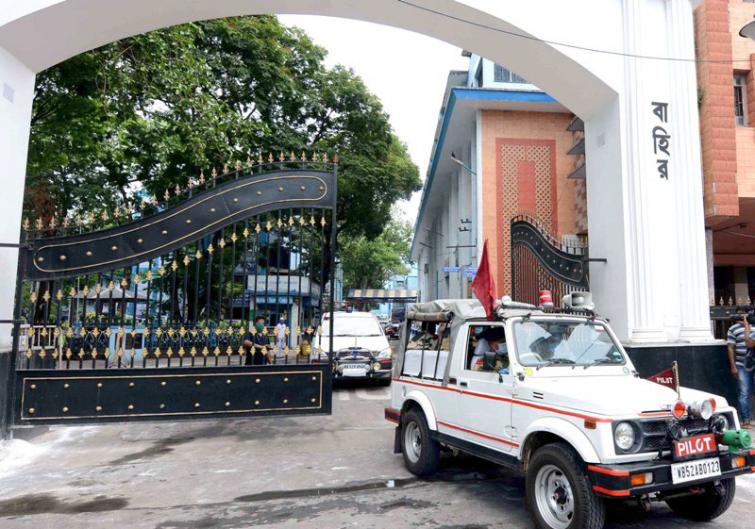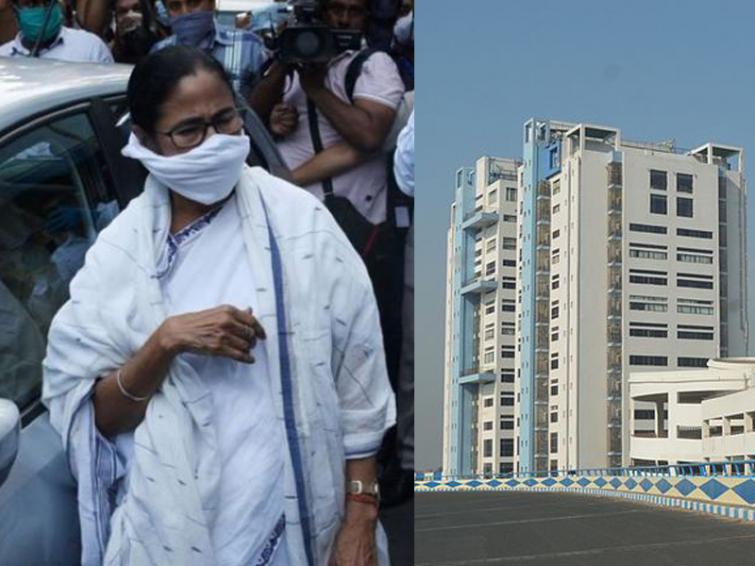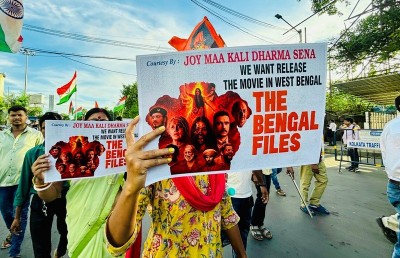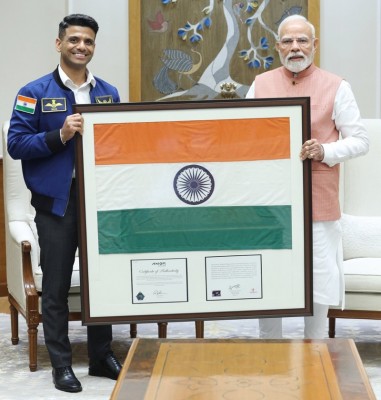
Poor testing and surveillance causing highest Covid-19 mortality in West Bengal: IMCT writes to govt before leaving state
Kolkata/IBNS: Before leaving West Bengal following a two-week inspection, the Chief of MHA's Inter-Ministerial Central Team (IMCT) in Kolkata, Apurva Chandra, on Monday sent their two-page 'final observations' to Bengal Chief Secretary Rajiva Sinha, saying that the state's extremely high mortality rate is an indication of low testing, and weak surveillance and tracking.
"The state raises the total death count of Covid patients in the state to 105 on Apr 30, and for a total reported number of 744+72=816 Covid patients, the mortality rate of 12.8 per cent is by far the highest in the country.," Apurva Chandra wrote in his letter.
"This extremely high mortality rate is a clear indication of low testing and weak surveillance and tracking," Chandra wrote.
Appreciating state's decision to indicate all deaths of Covid patients in the daily statistics, the IMCT chief wrote, "The IMCT notes that the state government has on Apr 30 made a pronouncement that henceforth all deaths of Covid patients would be indicated in the daily statistics and the death certificate would be issued by the hospital with the Committee of Doctors only examining a random sample— this is a big step towards transparency."

Meanwhile, suggesting the state to be transparent and consistent in reporting Covid-19 figures, the Central team in Kolkata wrote: "A discrepancy has been brought out in the number of Covid cases reported by the state in its medical bulletins and its communications with the Government of India. The state needs to be transparent and consistent in reporting Covid figures and not down play the spread of the virus."
Explaining the confusion over Covid data, IMCT chief wrote: "The bulletin of Apr 30 showed active Covid cases as 572, discharged after treatment 139 and expired due to Covid 33, making a total of 744 while in a communication to the Union Health Secretary from the Principal Secretary (Health) on the same day the total number of cases was indicated to be 931 leading to a discrepancy of 187 cases."
"In addition, it was admitted on Apr 30 that 72 Covid patients have expired but classified as death due to comorbidities— this number does not seem to find a reflection in the figure of 744, and the bulletins of May 1 and May 2 do not even mention the total number of cases and deaths in the state," Chandra added in the letter.
Meanwhile, questioning state's claim of high level daily surveillance of individuals in containment zones, IMCT chief wrote, "While the state government has claimed very high level of daily surveillance of individuals in containment zones, no database was shown or results made available."
"During the stay of the committee itself, over 50 lakhs persons would have been surveyed in the four districts. Collecting and evaluating a database of this magnitude rquires very robust systems to be in place. However, no such evidence was available during our stay or field visits," Apurva Chandra added.
Before leaving the state, in its final letter to the state government, the MHA's IMCT again mentioned about a series of noncooperation they received from the West Bengal administration.

"During its two-week stay in Kolkata, the IMCT addressed seven letters to Chief Secretary and four letters to the Principal Secretaries of Home, Health, Urban Development and Municipal Affairs, and Food and Supplies departments, seeking specific information from the state government, and the IMCT also repeatedly sought support of the state government for field visits and interactions with the public, health professionals and state functionaries," IMCT chief wrote.
"The IMCT also sought meeting with the Principal Secretaries of the mentioned departments at a time and venue of their convenience. However, the IMCT could interact only with the Principal Secretary (Health) through a video conference on Apr 23 and received some partial responses from the Health department," Apurva Chandra wrote.
"There has been no response or interaction with any other department of the state government. In short, the state government has taken an antagonistic view to the IMCT and has not supported the IMCT in the performance and duties," Chandra wrote.
"This contrasts with the experience of IMCTs deputed to other states at the same time where daily schedules of visits by the IMCTs were prepared and meetings were held by the IMCTs from the highest levels of the state government to the field level functionaries," the IMCT chief added, explaining their worst experience in West Bengal.
However, commending Bengal government's efforts in increasing the testing rate, the IMCT stated that it would be submitting its final report to the Ministry of Home Affairs.
"We hope that the suggestions conveyed to the state government through various communications would be seen and taken up for consideration in the right spirit," the IMCT letter read.
Support Our Journalism
We cannot do without you.. your contribution supports unbiased journalism
IBNS is not driven by any ism- not wokeism, not racism, not skewed secularism, not hyper right-wing or left liberal ideals, nor by any hardline religious beliefs or hyper nationalism. We want to serve you good old objective news, as they are. We do not judge or preach. We let people decide for themselves. We only try to present factual and well-sourced news.







